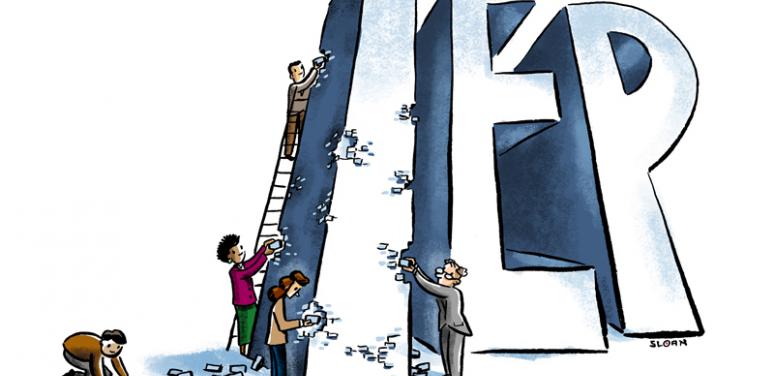Individualized Education Program (IEP) for the Exceptional Child

What is Special Education?
Special education means uniquely designed instruction to meet the one-of-a-kind needs of an exceptional child. It is provided at no cost to parents (K.S.A. 72-962(i)).
- Once a child is found to be suited for special education, a written plan will be prepared describing the educational programs the child will receive.
- This plan is called an Individualized Education Program (IEP).
- An IEP must be ready before the child’s placement in a special education program.
- The school district must get the parent’s written consent before placing the child in a special education program.
What is an IEP exactly?
An IEP is a written statement for a unique child that is created, reviewed, and revised to meet standards set up in the policy K.S.A. 72-987.
- The IEP is written by the child’s IEP team.
- This should include the parent(s) or guardian(s) and any other people important in the child's life.
- It is specially written to meet the child’s developmental needs and goals.
Who is on the team?
The IEP Team is composed of:
- The parents or guardians of the child;
- At least one regular education teacher of that child;
- At least one special education teacher;
- A skilled and informed rep of the agency directly involved in providing educational services for that child;
- A person who can interpret the teaching effects of the evaluation results;
- Other persons who have knowledge or special skills having to do with the child (optional); and
- Whenever proper, the child (K.S.A. 72-962(u)).
What about the parents of the exceptional child?
The parents or guardians of a gifted child or a child with a disability are expected to be equal players along with school personnel, in creating, reviewing, and revising the IEP of their child.
This role is an active role in which the parents:
- Provide critical info about the strengths of their child and express their concerns for enhancing the education of their child;
- Participate in discussions about the child’s needs for special education and related services and extra aids and services; and
- Join with the other parties in deciding how the child will be involved and how they will progress in the general curriculum.
- Also deciding how the child will take part in State and district-wide assessments, what services the agency will offer to the child and in what setting.
If you feel your child’s educational performance is not good enough, you may ask that he or she be re-assessed. Your child must always be re-evaluated before any serious change in his or her placement can occur.
At a minimum, your child must be re-assessed in all areas related to a suspected disability at least once every three years. If you are still not satisfied, you can start due process.
What is due process?
Due process means a fair procedure must be used for making decisions. In special education, due process refers to how a parent may appeal decisions made about the evaluation, suitability, educational program, or placement of the child.
Due process may be achieved through a formal hearing conducted by a neutral hearing officer.
It may also include mediation, which is a way of casually resolving the dispute without a formal hearing. Mediation can only occur if both the parents and the school district agree to it. A lawyer is not needed for mediation.
A formal hearing is more difficult to do without a lawyer. You may want to ask an attorney for advice about whether to try mediation or a formal hearing.
What should the IEP contain?
The IEP shall include:
- A statement of the child’s present level of school success and functional performance;
- A statement of measurable annual goals;
- A description of how the child’s progress towards meeting the annual goals will be measured and when reports will be provided;
- Explanation of the extent, if any, to which the child will not take part with non-exceptional children in the regular class.
- In other words, a description on whether or not your child will be in a classroom with non-exceptional children and if they are in the classroom, how long will they be in the "regular" classroom every day,
- Explanation of any changes to or adaptations of state or district-wide assessments; or whether or not changes in tests will help your child progress, and what will they be;
- Anticipated dates of services (frequency, location, duration); or how often, where and how long your child will receive services each day;
- And postsecondary goals for children over 14, or where your child will go after graduating (College? Vocational rehab? Other training?)
- A statement of the special education and related services and added aids, based on peer-reviewed research (proven to be effective), to be provided to the child.
- A statement that the child has been informed of his or her child’s rights, if any, that will transfer to him or her on reaching the age of majority as provided in K.S.A. 72-989(c).
Changes in special education laws regarding IEP's
Whether you are already aware of IEP’s or are just learning about them, you may want to also get to know some changes made to the IEP process.
Some of the changes made in 2005 about special education law in Kansas included:
- A school district may not have its attorney present at the IEP meeting unless the parents have an attorney at the meeting as well;
- The meaning of parent was expanded to include foster parents, if they are appointed (and agree to be) the education advocate of an exceptional child;
- The school district has a duty to find disabled children that are homeless and those who have limited skill in English;
- All records of an exceptional child who transfers from one school district to another must be transferred with the child or as soon thereafter as possible;
- Parental consent is needed for assessment and for the initial provision of services; and
- The child’s IEP must also include fitting postsecondary education goals based on age-appropriate transition assessments for exceptional children.



